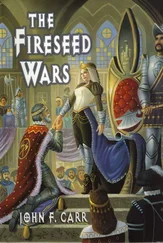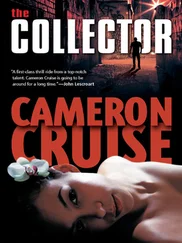I pictured a butterfly floating in the jet stream—beating its wings furiously to stay aloft—and moving just enough air so storm clouds would travel north instead of south. It was difficult to imagine, although I knew men changed the weather with giant airplanes that seeded the clouds for rain and enormous turbines that sucked the moisture from the sky. Many days we awoke with storm clouds on the horizon, only to see the sky transformed into a brilliant, piercing blue.
“What’s the most important thing we can do to protect our weather?” Mrs. D. asked.
“Guard the earth and sky,” we answered in unison.
Mrs. Delfina smiled. Her teeth were large and white and looked nearly perfect. In fact, I knew they were not real. I had seen her once, in the bathroom, with her teeth on the side of the sink, her open mouth hollow and empty. Teeth were the first thing that went bad, and most shakers had to make do with fake ones. Mrs. D. was lucky she could afford them. There were plenty who could not.
When we finished morning lessons, there was lunch, which we ate in the cafeteria. The school had stopped providing hot lunch several years ago. Now most kids brought lunch from home. I traded my Cheesios to another girl for an extra soy milk. Nearby a group of boys tossed packs of dried veggies at each other. I looked around for Will, but I didn’t see him. I drank the first milk, and then the second, and still I was thirsty. But there would be no more until dinner, so I forced my lips shut and tried to think about something else.
During recess some of the younger kids went outside, even though the school forbade it. There weren’t enough teachers to prevent them, and they snuck out through the cafeteria doors. I sat near a window with my screen and watched them kick a small ball around in the dust. When they came back inside, they were sweaty and dirty and laughing. One boy started coughing, and the others made fun of him, holding their hands over their mouths and whooping. The first boy looked as if he might start crying, and I nearly stood up to tell the others to stop. But then the bell rang; school resumed, and the rest of the day passed quickly. More lessons in weather, then water management and conservation, then math.
After school I stayed late for water team. I got to work with the seniors, because I was tall for my age, and our supervisor thought I was older. I helped one girl clear the drains where the morning dew trickled into the catch basins. We found a dead snake, which made the girl shriek. I lifted it by its tail and tossed it into the garbage. Dead things never bothered me. Once they were dead, I figured, they couldn’t harm anyone.
Afterward I waited for Will. He was leader of a team working with the condensers on the roof. It was tricky climbing the pitted walls where the ladders had cracked and split, but Will was nimble and quick and found footholds when others could not. I saw him walking from the traps near the recycling barrels with his head high and several other children following him. He pretended not to notice, but I could tell that he was proud to be in charge.
We didn’t talk much on the ride back home. School was exhausting even though very little got done. Will’s shoulders drooped and his head lolled toward the window as if he couldn’t hold it up. As for me, I felt like there was cotton in my head. Although the ride was noisy and bumpy, we both fell asleep somewhere before home.
The driver woke us at our stop. We staggered from the bus and trudged along the sandy path to our building. There was no shade, and the sun on our heads was like a dull, throbbing drum. Our building was nearly a kilometer from the main road, and the walk left us coated in a gray, sooty dust. When we arrived at the entrance, Will punched in the code for the security gate, and I pushed it open.
Our father was waiting for us by the front door to our apartment. It was always a surprise to see how much he had aged in the last year. The lines around his eyes and mouth had deepened, and his cheeks sunk where once they stretched. He was always slim, but he seemed thinner—almost gaunt. His black hair was now flecked with gray, and the hazel in his eyes was closer to brown than green. I kissed him hello, and he smiled slightly.
“Hi, Daddy,” I said.
“How was school?” he asked.
I made up a story about being asked to lead the class in a prayer, and this made him happy. Although not religious, he liked to tell us there was some higher purpose to life that would eventually be revealed. This was something he had started talking about only in the last year—only since our mother had gotten sick.
“Are you hungry?” he asked.
I said I wasn’t, although I hadn’t eaten since before noon. Will just ignored him and headed for the back bedroom. I looked at my father and shrugged, then followed Will.
Since the headaches had crippled her, our mother spent nearly every day in her room, emerging only to use the bathroom. It was impossible for her to rise in the morning or to tolerate sunlight. All the shades were drawn and the lights turned low. There was something in the air that smelled like mint, and the ventilation system that cycled it made the room sweet and pungent. It was part of the medicine the doctors prescribed, but I suspected it was nothing more than perfume. Medicine was expensive and in short supply, and most doctors were fakes anyway.
Our mother seemed shrunken on the bed, the pillows like giant beanbags behind her. Her eyes were closed, and I could barely see the rest of her face above the big blanket that covered her body. Our father stepped into the room behind Will. He appeared to be waiting for someone to speak, but Will just stood quietly as if he were weighing something.
I couldn’t bear the silence. “Hi, Mom,” I said. “We just got home from school.”
Our mother opened her eyes. “Hello, Vera.” Her voice sounded as if it had emerged from a great depth.
“Are you feeling okay?”
“The light. It hurts my eyes.”
“Should I shut it off?” Our mother waved weakly, which could have been yes or no.
“It’s not the light,” said Will. “It’s the water.”
“There’s nothing wrong with the water,” said our father.
“She needs fresh water,” said Will. He was moving quickly now toward her table, grabbing the bottles of various sizes beside her, trying to hold them all in his hands, knocking them against each other.
“Will, please,” said our mother.
“You have to drink some clean water!”
“You’ll break them!” warned our father.
But Will emptied the bottles as if they were filled with poison, spraying liquid through the air. His hands flailed above his head as he emptied their contents in a frenzy of fury and frustration. One bottle slipped from his hand and shattered on the floor, pink liquid oozing between shards of glass. He looked as if he might smash another and raised his arms to throw it.
Our father grabbed him and pulled him down, but Will continued to struggle. Although our father was heavier, he was a few centimeters shorter than Will, and I worried Will would hurt him.
“Stop it! Stop it!” I cried.
“Will?” our mother asked.
But Will couldn’t answer. He was sobbing on the floor.
Maybe it was the water. Maybe it was the air. Maybe it was the earth itself. Whatever the cause, people were sick, and not just our mother. In our building, eight adults had been to the hospital in the last month alone. Most of them were not old, and two were young enough to still live with their parents. At school kids were always absent with colds or coughs, and even I had a sore throat for most of the winter. Will complained of aches in his muscles, which our father treated with warm compresses and synaspirin. It seemed like there was always an ambulette parked in front of our building or racing down the street.
Читать дальше












